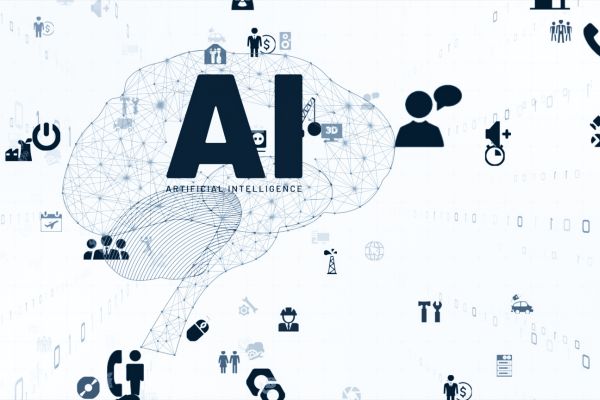When people talk about the future of medicine, one phrase keeps popping up again and again: machine learning in healthcare. And honestly, it’s not just some buzzword floating around at conferences or in fancy journals. It’s already here, reshaping the way doctors diagnose, treat, and even prevent diseases. Let’s dive into how this technology is making waves, why it matters, and what it really means for all of us.
The Promise of Machine Learning in Healthcare
Healthcare has always been about patterns. A patient describes symptoms, doctors compare them with what they know, run tests, and try to connect the dots. But here’s the thing: human brains, as brilliant as they are, can only juggle so much data at once. Machine learning in healthcare, on the other hand, thrives on massive data sets. It can scan thousands of records, images, and genetic profiles in seconds, spotting subtle patterns that a doctor might not catch at first glance.
And let’s be real—speed matters. Early detection often means the difference between a minor treatment and a life-threatening condition. Machine learning tools are stepping in to help make that critical difference.
Diagnosing Diseases Faster and Smarter
One of the most talked-about applications of machine learning in healthcare is diagnosis. Think about radiology, for example. Machines trained on millions of medical images can now flag suspicious spots in X-rays or MRIs, helping radiologists zero in on potential issues.
Take cancer detection. Machine learning systems can highlight tiny tumors that might be missed during a quick human review. It’s not about replacing doctors—it’s about giving them an incredibly sharp pair of extra eyes. Imagine sitting in a consultation where your doctor says, “Our system caught something small early on, and that gives us more treatment options.” That’s huge.
Personalized Treatment Plans
You know how medicine often feels “one-size-fits-all”? Machine learning in healthcare is breaking that mold. By analyzing patient data—everything from genetic information to lifestyle habits—these systems can recommend treatment plans tailored to the individual.
For example, two patients might both be diagnosed with the same type of diabetes, but their bodies, habits, and responses to medication could be wildly different. Machine learning helps predict which treatment path is most likely to work best for each person. It’s like moving from generic advice to a plan crafted specifically for you.
Drug Discovery and Development
Here’s something most people don’t realize: developing a new drug usually takes over a decade and billions of dollars. That’s a massive investment. But machine learning in healthcare is speeding up this process. Algorithms can analyze chemical compounds, predict how they’ll interact with the human body, and even flag potential side effects—all before a single pill is tested in a lab.
This means researchers can focus on the most promising candidates, cutting years off the timeline and saving money. In recent years, some breakthrough drugs have reached clinical trials faster thanks to these smart systems.
Streamlining Hospital Operations
It’s not just about doctors and patients—machine learning in healthcare is also improving the way hospitals run. Predictive algorithms can forecast patient admissions, optimize staff scheduling, and even manage supplies.
Picture this: instead of nurses scrambling because a ward is suddenly overloaded, machine learning systems predict the surge ahead of time, ensuring enough beds and staff are ready. Less chaos, more care. That’s the kind of behind-the-scenes impact that often goes unnoticed but changes lives every single day.
Mental Health and Predictive Analytics
Physical illnesses aren’t the only focus. Machine learning is also entering the world of mental health. Apps and platforms are using data from smartphones—like text patterns, voice tone, or even sleep tracking—to flag early signs of depression or anxiety.
Sure, it might sound a bit futuristic (and maybe a little unsettling), but for people who struggle silently, this kind of early alert could make all the difference. It opens up opportunities for timely intervention before conditions worsen.
The Ethical Side of Things
Now, let’s not sugarcoat it—machine learning in healthcare isn’t without its challenges. Data privacy is a huge deal. Nobody wants their sensitive medical history floating around unprotected. Then there’s the question of bias. If an algorithm is trained mostly on data from one population group, its predictions might not be accurate for others.
These are real concerns, and healthcare providers, regulators, and tech companies are working hard to address them. Transparency and fairness have to stay at the core, otherwise the trust that patients place in doctors could be undermined.
Will Machines Replace Doctors?
This is the million-dollar question people love to ask. Let’s be clear: machine learning in healthcare is not about replacing doctors. It’s about supporting them. Think of it as giving medical professionals superpowers.
Doctors still bring empathy, intuition, and human judgment—things no algorithm can fully replicate. Machines can crunch numbers and highlight insights, but it’s the doctors who interpret them, communicate with patients, and make the final calls.
The Road Ahead
So, where’s this all heading? Honestly, the possibilities are endless. Imagine AI-powered chatbots guiding patients through routine health questions. Or wearable devices using machine learning to monitor heart rhythms in real time and pinging your doctor if something looks off.
We’re already seeing pieces of this puzzle come together. And as technology continues to advance, the integration of machine learning in healthcare will only deepen.
Conclusion: A Healthier Future with Machine Learning
At the end of the day, machine learning in healthcare is not some distant dream. It’s happening right now, shaping how diseases are detected, how treatments are chosen, and how hospitals run. Yes, challenges remain, but the direction is clear—smarter, faster, and more personalized care.
And let’s be honest, if technology can help us catch illnesses earlier, make treatments more effective, and ease the workload on doctors, then that’s a future worth embracing. Machine learning in healthcare isn’t just a trend—it’s a game-changer that could very well save lives.

